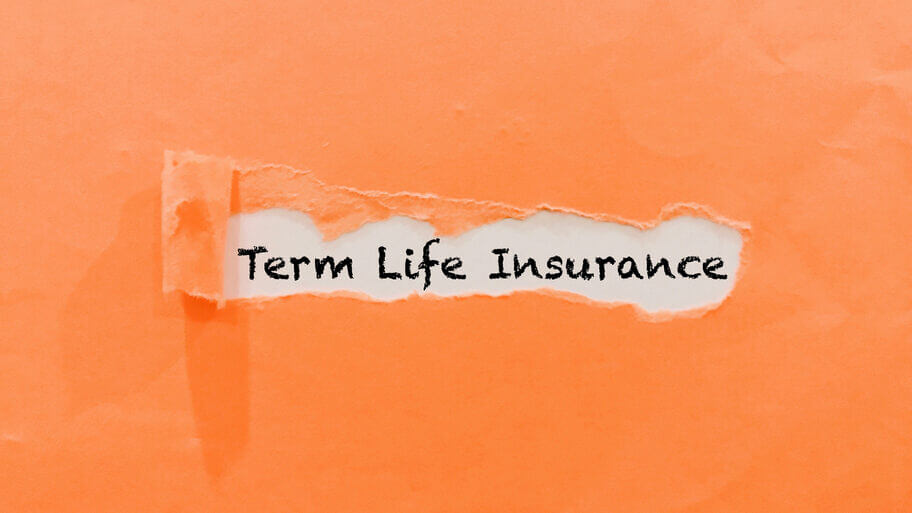Although both term insurance and accidental death & dismemberment policies cover death, they’re different.
AD&D protects against accidental death. It also pays if you lose a function such as hearing, sight, or even a limb in an accident.
Life insurance is a type of policy where you pay premiums, and after you die, your beneficiaries receive death benefits from the insurance company.
There are two types of life insurance: term life and permanent insurance. Here is everything you need to know about term life insurance and AD&D.
What Is Term Life Insurance?
Term life is an insurance policy that helps provide financial coverage for a predetermined period. It guarantees payment to the beneficiaries if the policyholder dies within the specified period.
If the policyholder outlives the policy, the payment is canceled. You can opt to renew your current term life policy or convert it into permanent life insurance.
However, you can buy a Return-of-Premium (ROP) life insurance plan if you want your premiums back. This is often offered as a life insurance rider.
ROP life insurance is a policy that refunds all the premiums you paid if you outlive your term life insurance. However, it’s much more costly than standard term life insurance.
Similar to term life insurance is terminal illness insurance. However, with terminal illness insurance, the policyholder gets a lump sum of money in the form of a life insurance terminal illness payout when they’re diagnosed with a terminal illness.
On the other hand, with term life insurance, the insurance provider gives death benefits to the beneficiaries if the insured dies.
What Is Accidental Death and Dismemberment?
Usually also added as a rider, accidental death and dismemberment (AD&D) insurance covers unintentional death or dismemberment of the insured.
Dismemberment includes the loss of a body part or function such as hearing, speech, movement, and sight. However, it doesn’t pay if the policyholder dies of natural causes such as heart disease.
You should be careful when purchasing a policy as the limitations of AD&D are significant. For instance, there are exclusions such as suicide, drug overdose, injury, death when committing a crime, etc.
AD&D and Life Insurance Differences
The following table shows the differences between term life and AD&D insurance.
| Term Life Insurance | AD&D Insurance |
| Pays out in case of death, whether from illness, disease, or accident. | Covers accidental death, not deaths due to illness or disease. |
| Covers death only. | Covers accidental death and loss of body parts and functions. |
| Coverage limitations are not as extensive as in AD&D. | Has extensive coverage limitations. |
| A type of life insurance. | Not a substitute for life insurance but can be a supplemental policy. |
| Relatively more expensive as it covers death from any cause. However, the payout is higher than AD&D. | Costs less than life insurance as coverage is limited to accidents. However, the payout is relatively lower than life insurance. |
What Is Voluntary Life Insurance and AD&D?
Voluntary Accidental Death and Dismemberment (VAD&D) life insurance is an optional policy that covers accidental death or loss of a body part or function.
Offered as part of an employment package by some employers, it is advantageous for workers at high risk of accidents and physical injury. You can also buy AD&D as a rider to a life insurance policy.
The amount of benefits paid depends on the coverage purchased as well as the claim filed. For instance, if the policyholder dies accidentally, the policy can pay 100% of the coverage. However, if they lose one limb or hearing in one ear, it might pay only 50%.
Limitations of AD&D
AD&D policies usually come with extensive limitations. So, make sure you read every detail and fine print before buying a policy.
Some policies require the insured’s death to have occurred within a specific time frame after an accident. They may also fail to cover the following:
-
-
- Death by suicide or intentionally self-inflicted injuries
- Drug overdose
- Death resulting from an injury incurred before the coverage
- Death or injury while undertaking a hobby such as skydiving
- Death or injury when committing a crime
- Death or injury when serving in the military
- Death or injury from an accident due to drunk driving
-
Pros and Cons of Accidental Death and Dismemberment Insurance
Pros
-
-
-
- You don’t have to get a medical exam or answer questions about your health. This makes it attractive to people with pre-existing conditions.
- There is usually no medical exam, no lengthy questionnaires, and no waiting period. So, you’ll get the coverage easily and quickly.
- Premiums are relatively less expensive than those of standard life insurance policies.
- You can’t be denied coverage based on your health. You only need to meet the age requirement, which is between 18 to 70 or 80 years.
- Can have double indemnity either as a standalone policy or a rider for a life insurance policy.
-
-
Cons
-
-
-
- Only pays for accidental death or injury, not natural causes or illness.
- Has extensive limitations
- It may not be portable if it’s an employer-sponsored or group policy.
-
-
Term Life Insurance vs. AD&D: Which is Better?
Term life insurance covers death from all causes, including illness and natural causes. AD&D, on the other hand, only covers death and injury resulting from accidents.
There are many ways a person can die. Heart disease and cancer are the major causes of death; accidents come third. That means it’s most probable that you won’t die from an accident.
However, if you work where you’re prone to physical accidents or your employer provides an AD&D cover, it’s good to have. Otherwise, term life insurance is a better option as it’ll cover death from different causes, not just accidents.
If you are still unsure what insurance is right for you, consult with a life insurance agent. But remember that while they can give you advice based on experience, they may not accurately predict when or how you will die.
This is why they have life insurance E&O or life agent errors and omissions insurance, a liability policy that pays for the court costs and settlement amount if they are sued for bad advice.
Featured Image: Twenty20








